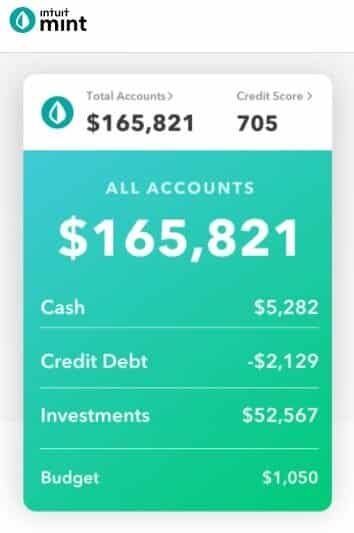Reevaluating Household Budgets In Light of COVID
COVID-19 has introduced high levels of economic uncertainty in the US the pandemic exploded in March 2020.
In response, Americans have adjusted some of their budgeting habits to weather challenging times and account for the “new normal.”
A recent survey by Clutch.co of over 500 Americans indicated that about half (49%) felt financially prepared for the economic impact brought about by the pandemic. This is a positive indicator that Americans feel comfortable organizing and following a personal budget.
However, the pandemic has made people reevaluate their existing budgeting habits and adjust their routines for long-term financial security.
This article will highlight three trends emerging in American budgeting habits since the start of the pandemic.
People Are Creating Monthly Budgets
Most frequently, Americans build and adjust their budgets on a monthly basis.
According to Clutch, 30% of those creating budgets do so once or more each month. One of the primary purposes of a budget is to ensure that you aren’t spending too much and building up debt.
A monthly budget allows for increased versatility with your spending. By evaluating your spending and earnings on a frequent basis, you give yourself the opportunity to pivot to a more productive, effective system more regularly.
The pandemic has caused economic fluctuations, change, and overall uncertainty in the United States. Those who set new budgets on a monthly basis feel better equipped to nimbly adapt to changes over time.
Once you discover monthly trends within your budget, begin taking the following actions:
-
Cancel an unnecessary expense
-
Set a spending limit
-
Build up an emergency fund by saving what isn’t spent
Finding practical ways to save money and scale back on spending will help individuals feel more confident about spending.
Additionally, evaluating and adjusting your budget more frequently will help you detect your overspending. If you’re working to make progress against debt, you’ll be better prepared to track your performance there as well.
Creating a monthly budget offers people the opportunity to make agile decisions based on spending habits and trends during the pandemic.
Over Half of Americans Use Budgeting Tools
During the COVID-19 pandemic, 56% of Americans admit to using online tools and resources to assist them in building their personal budgets.
Most commonly, people rely on Excel and other spreadsheet tools to draft their budgets, but they also look to apps, a financial planner, and family advice for help with budgeting.
In fact, budgeting spreadsheet templates are often ranked and shared virtually to make budgeting more streamlined and organized for individuals.
Applications such as Mint helps users budget by connecting bank account and credit cards to an associated budget.

This app and others like it monitor and track spending throughout the month, alerting the user when their monthly spending has met or exceeded their budgeted amount. Users can receive these messages straight to their mobile devices, keeping them actively thinking about their budgets in their day-to-day life.
The platform also creates visual representations of your budget paired with your current spending habits, encouraging users to make spending adjustments throughout the month in order to follow their budgets.
Budgeting tools such as Mint allow people to follow through on their budgets once they set them. By tracking spending and saving activity in real-time, online tools make the act of budgeting less intimidating to new budgeters.
During the pandemic, people have employed budgeting tools such as Excel and Mint to track and follow their budgets throughout the month. By making a concerted effort to follow their budgets closely, they can better plan their finances for the future.
The Majority of Americans’ Budgets Go to Housing Costs
One of the most important aspects of budgeting is monitoring and forecasting recurring expenses, especially those that consume a large chunk of your paycheck.
The Clutch survey found that 59% of Americans spend most of their paycheck on housing costs, including rent, mortgage payments, utilities, and more.
Popularized by Elizabeth Warren, the 50/20/30 budget rule states that people should aim to spend about 30% of their monthly income on housing or rent costs. Especially in large cities, people spend more than what is recommended on housing costs.
Trulia recommends that people spending over 30% of their income on housing consider the following actions:
-
Cut back on spending in other places (car, cable, shopping, spending)
-
Adjust the budget regularly to account for unexpected expenses or income
-
Negotiate rent if the asking price exceeds your budget
Budgeting requires creating a healthy balance between spending categories such as housing costs and grocery costs. There’s no issue in allocating more of your monthly earnings to housing costs so long as you make the proper adjustments elsewhere in your budget.
For instance, if your housing costs exceed 30% of your budget, consider cutting back on your budget for dining out or entertainment services. In doing this, you’re taking steps to balance a budget to meet your specific needs. Regularly participating in this exercise will ensure that you can adapt to changes in your finances as needed.
During the COVID-19 pandemic, Americans dedicate the majority of their budgets to housing costs, despite the 50/20/30 rule. Learning to regularly and effectively set a budget to reflect a high cost of living will prove helpful for those in similar positions.
Budgeting Is an Essential During COVID-19
Creating a budget is important during the pandemic because it provides greater control over your finances and an improved sense of stability in your long-term planning.
During the pandemic, people are commonly creating budgets on a monthly basis, highlighting the importance of being able to quickly pivot according to changes in economic performance.
Secondly, people rely more on budgeting tools to navigate the pandemic and control their spending in their day-to-day lives.
People must also work to balance their budgets around housing costs, which account for the majority of many Americans’ budgets.








